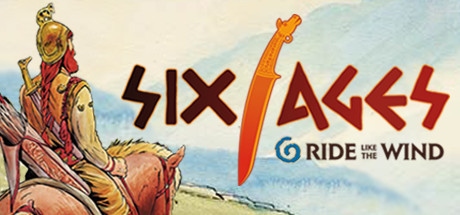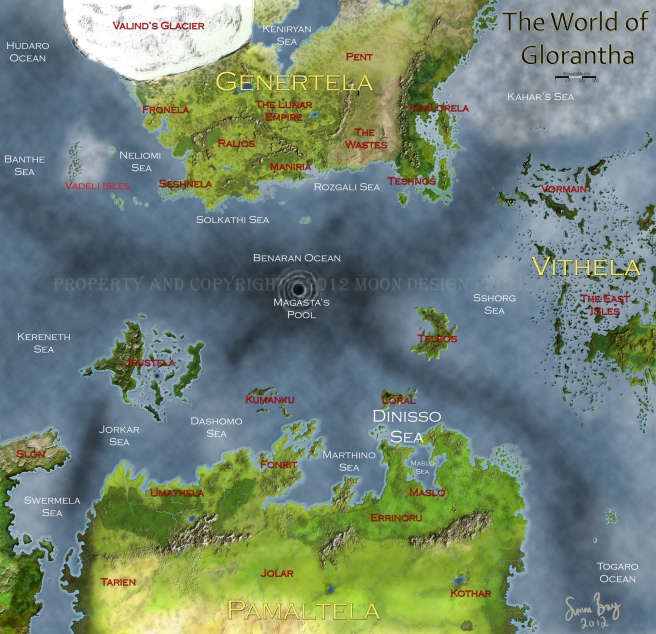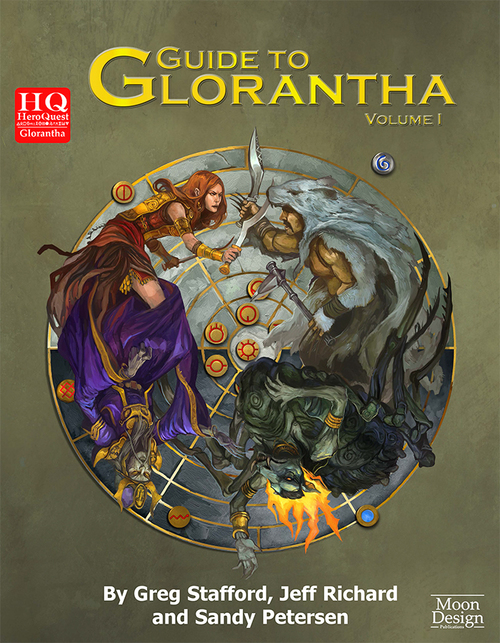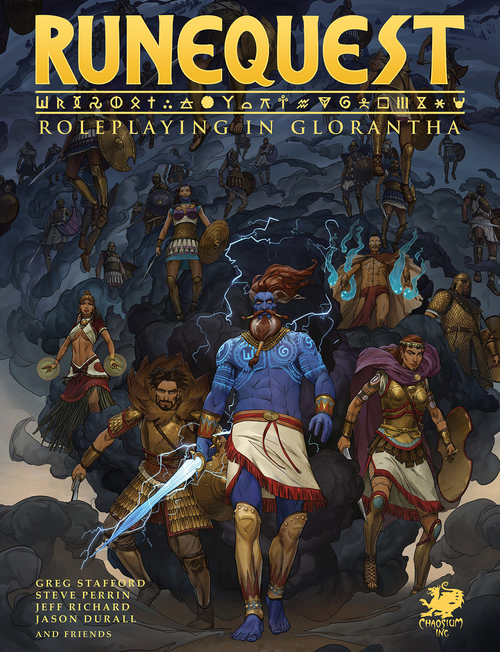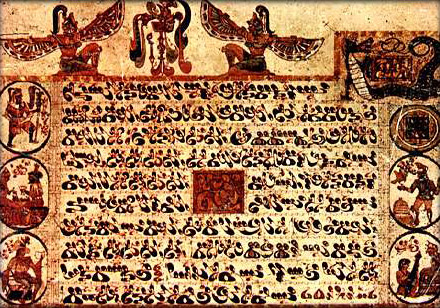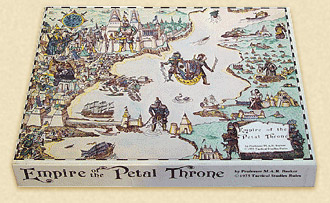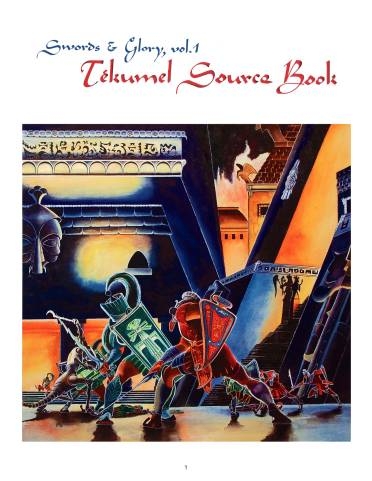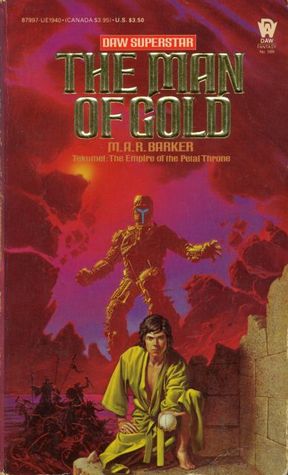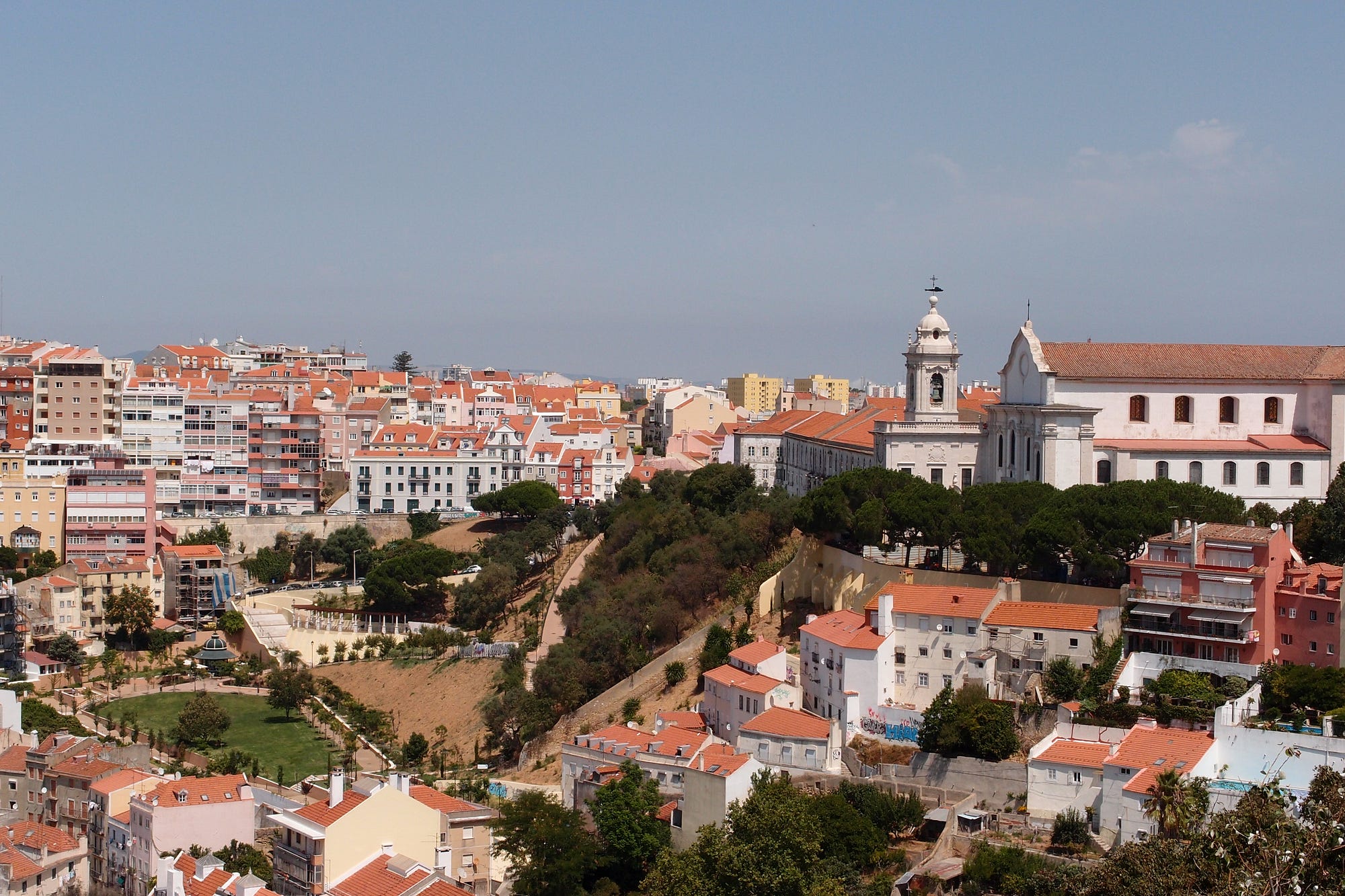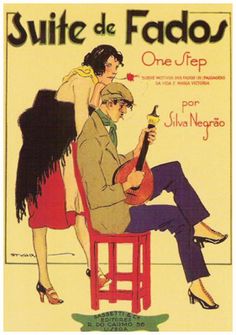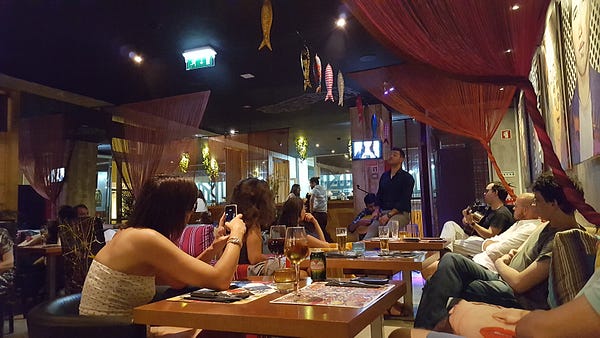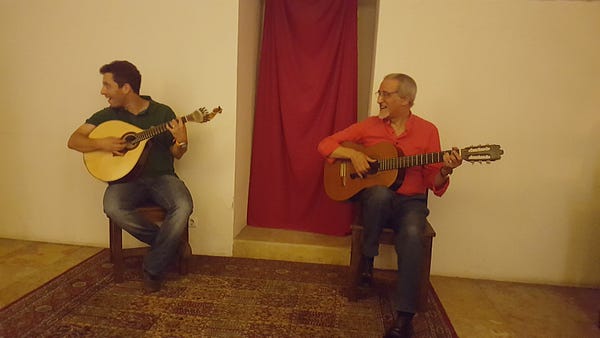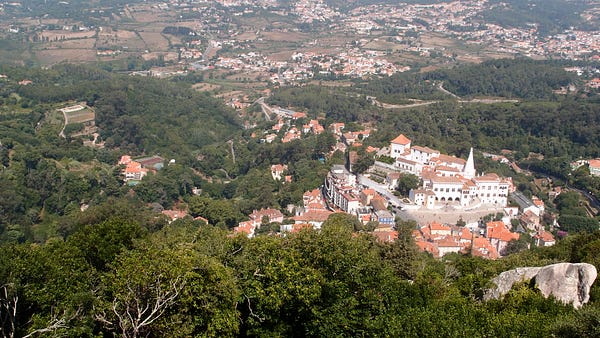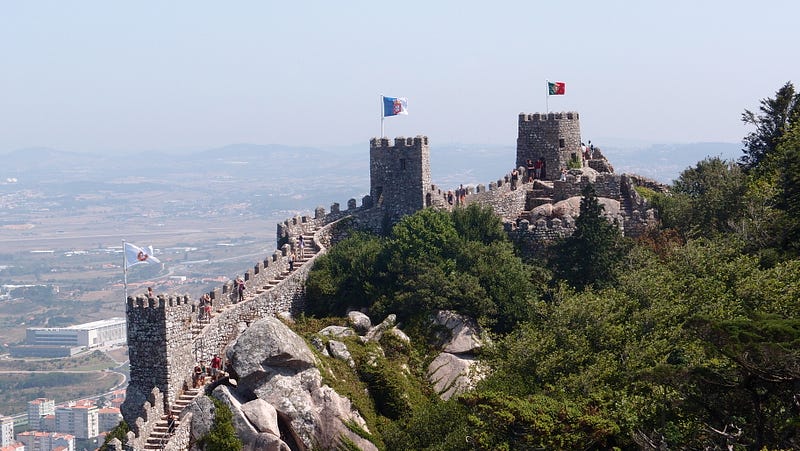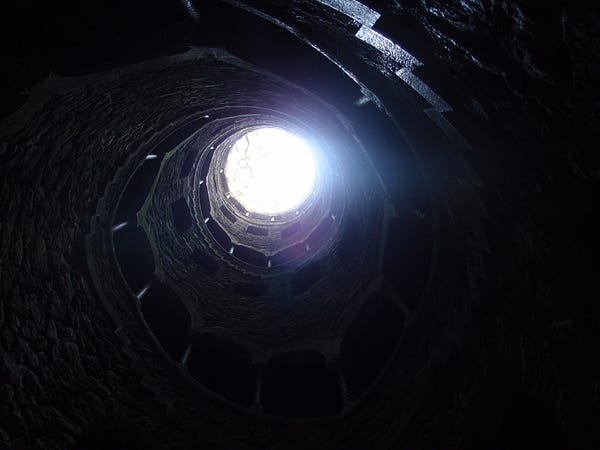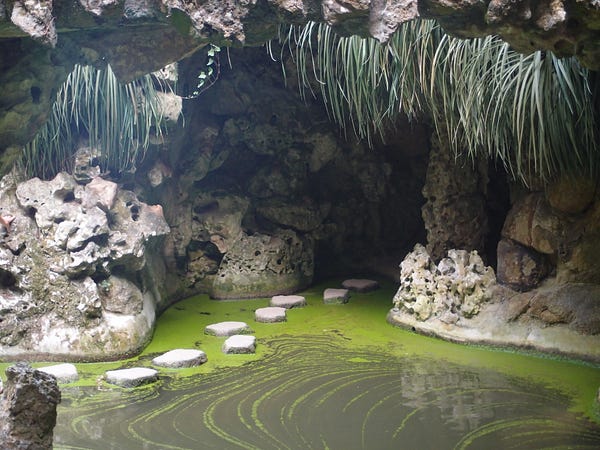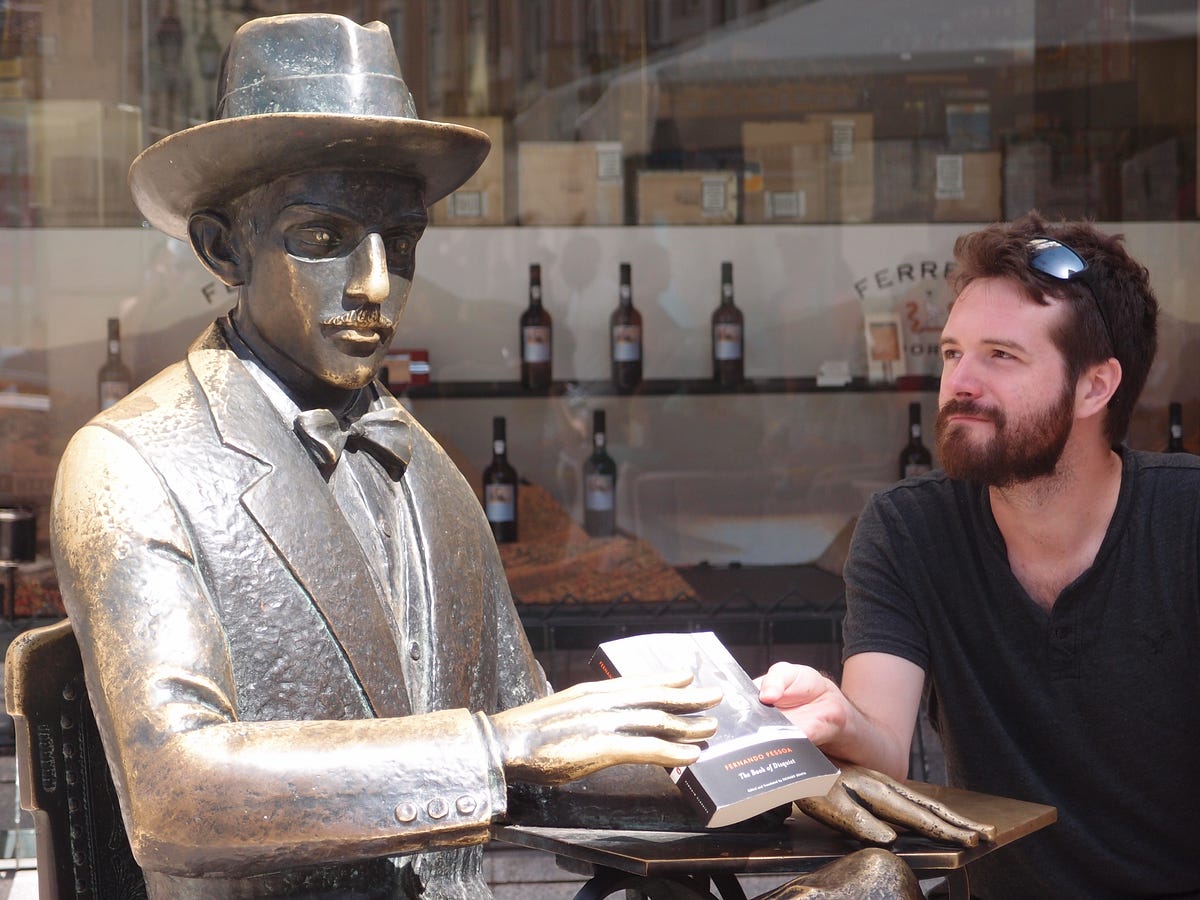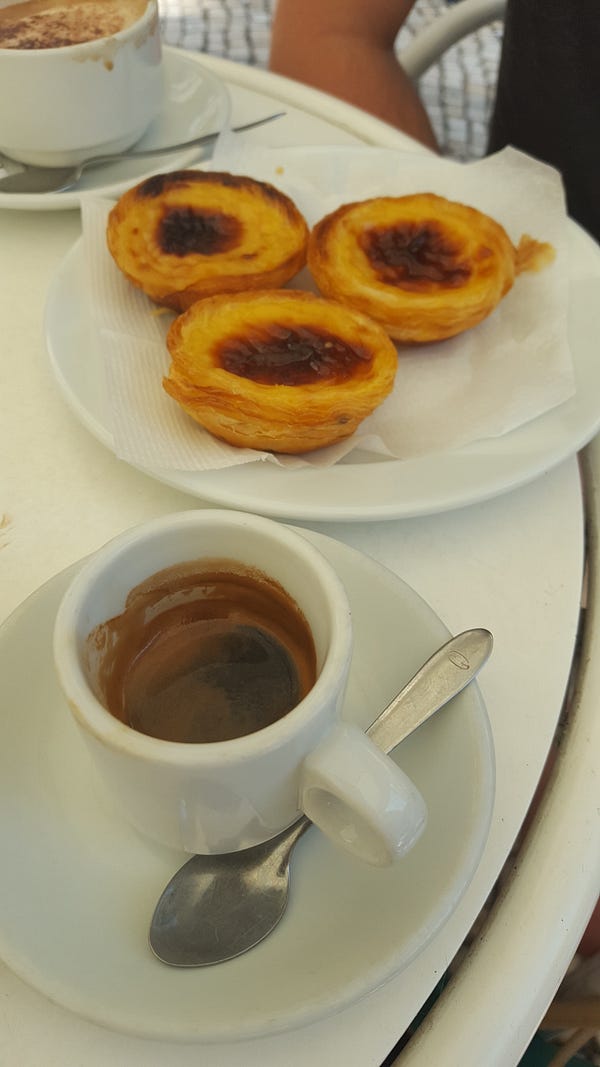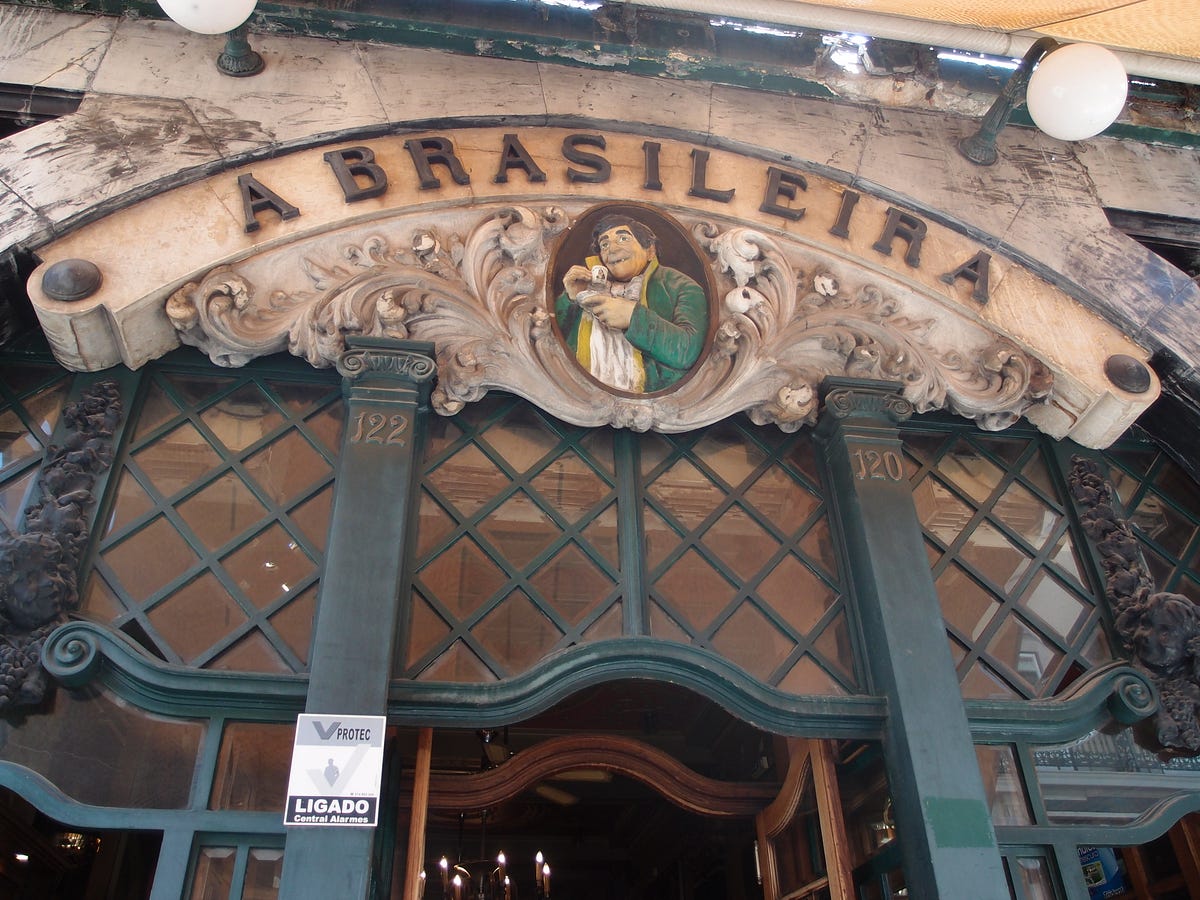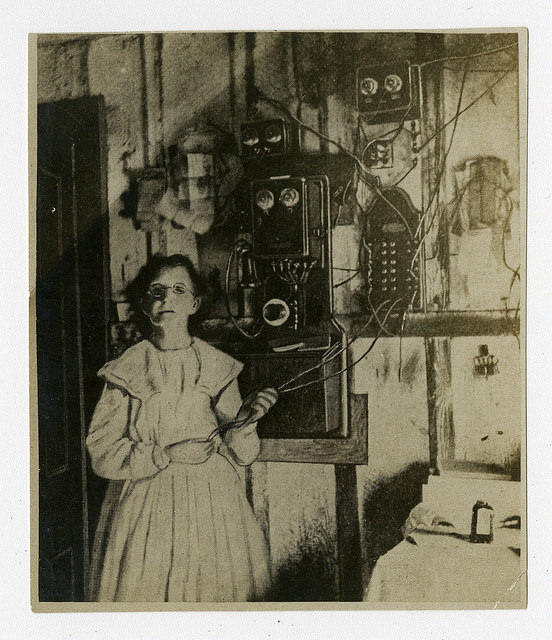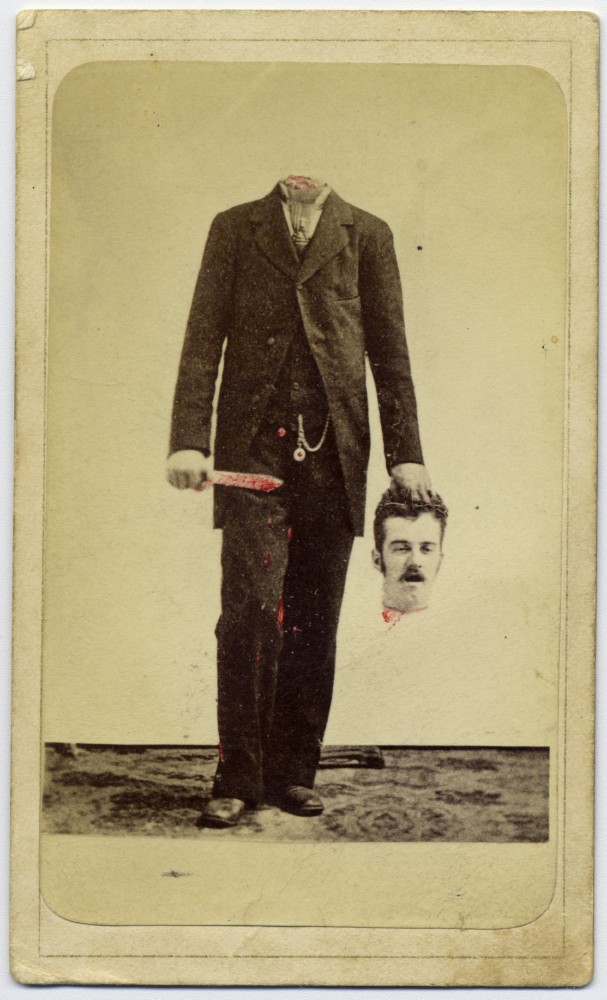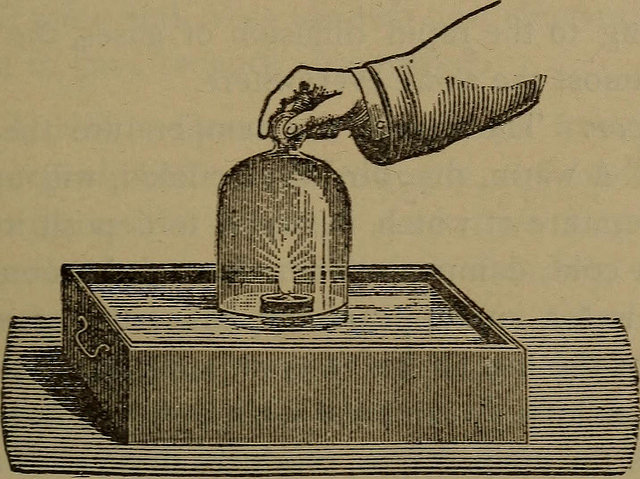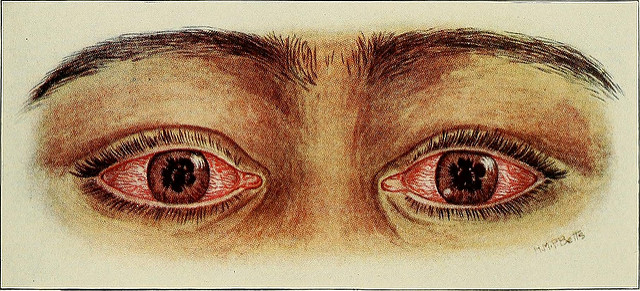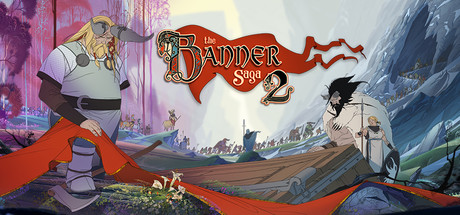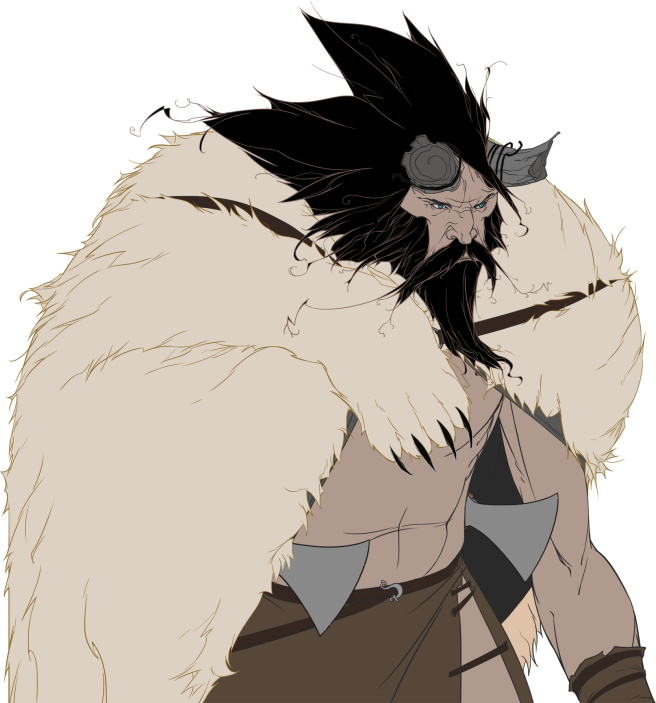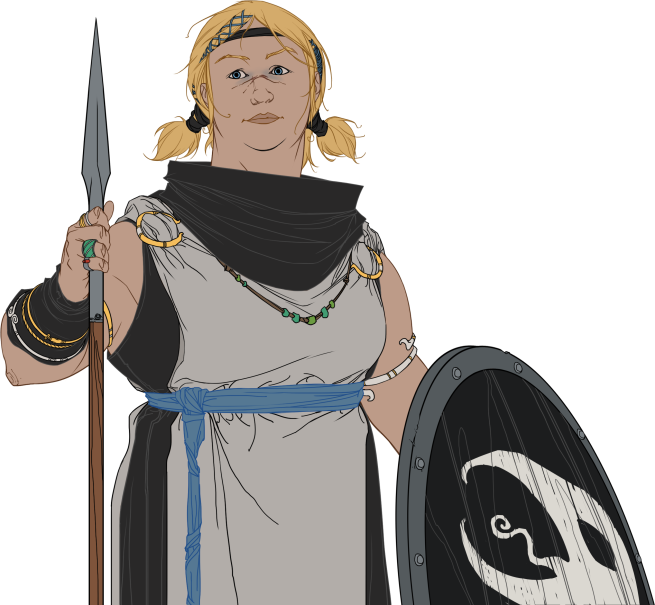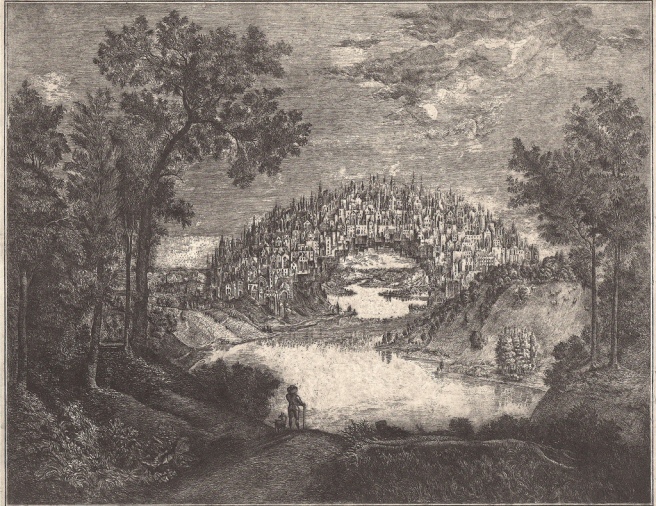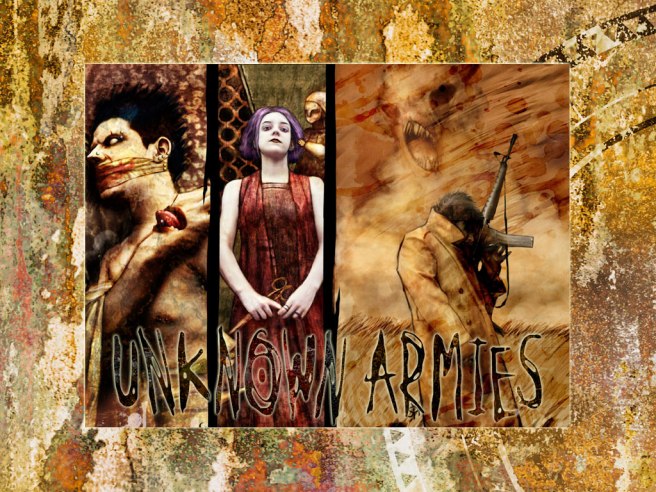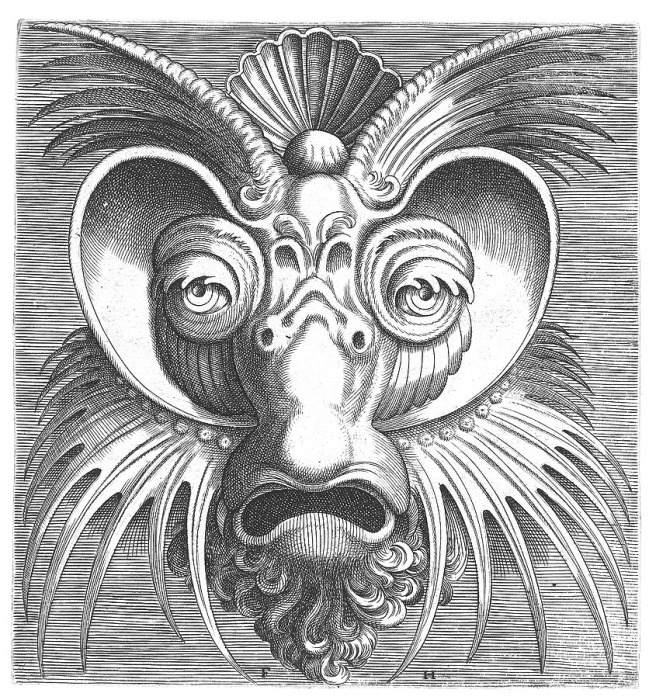
Here’s the next part of my short story cycle (what do I even call this thing!?). I was stuck on this part for awhile, and it’s longer than the other pieces I’ve posted. I was riding high on my creative juices a few months ago, but then I suffered one of those app crashes everyone knows and hates (thanks OpenOffice). I lost a few pages worth of progress, and it was hard to go back to it after that. Eventually I forgot most of what I had written, so I guess that allowed me to dive in again with less grief. The only phrase that survived the original draft was “inconvenienced by an eyeball full of glass.”
Entry the fourth, the 10th day of Poldoure, 738th year of the Sanguine Reckoning
My draw for today is one of the Tensions, those significant cards which can change the entire meaning of a full reading. While I am not performing the Deck’s proper ceremony, the skin of my neck still crawls at the weight and power of these cards. I have drawn Terrible Joy.
My adventure in Harrowgate soon drew to an ignominious end. The doctor of course had her servants looking for me, probably as soon as I had made my escape. She was an artist of the vats, and rented out a number of her creations to various agencies and interested parties. The infamous Spore Hounds, Jagged Men and Mud Puppets were all of her original design, and she has lived well from the bounty of her genius. One might wonder why she kept poor old Albadore employed at the mansion when she could easily breed her own housekeepers. My personal theory is that she felt obligated to her grandfather, whom she inherited everything from. Pity is something she struggles with, but debts she can certainly respect.
Another part of her considerable inheritance were the Swantopelk Retrievers. Though she was a talented sculptor of flesh in her own right, she preferred the use of these old retainers for her dirty work. I was not the first of her creations to escape from the laboratory, and these old fellows had proved useful countless times in the past. I had never seen them in action until that day, and I shan’t forget it anytime soon.
I regret to write it here, but I must be honest in my account. I had gotten a bit carried away at that Harrowgate pub. That, no doubt, is what led to my discovery. My body is strong and versatile in many ways, but I don’t think the doctor had alcohol in mind when she crafted it. That first sip of forbidden liquor sent thick lightning running through my blood, and I was lost in a joyous fever. It might be accurate to label me as a lightweight.
I remember little of those few hours I spent at the Ebullient Bass, but I know that as I spent more of that unfortunate woman’s money on what I thought were samples (those glasses are rather small after all), I became less concerned with hiding my identity as an escaped laboratory experiment. I joined a group of dockworkers singing an earthy canzonet about a woman’s massive skirts, and what she might have kept concealed within them (the possibilities were nearly endless). We shook the very Bridge with our songs. I played against a blind Billower in a game of Catafalco, and I lost what was left of my stolen money (I’m quite sure he cheated).
Things took a more unfortunate turn for me when I began flirting with a pretty young serving girl. I was quite far gone at this point, and the hospitality of the Bridge-folk only made things worse, as my new friends kept buying me more drinks. She was friendly, and probably used to this sort of attention, but not from one such as I. At the urgings of the dockers I went to compliment her on her smile, and ask if she would accompany me for a promenade. She replied by saying she would be the only one promenading, while I would surely be dragging my feet in the gutter. Taken aback, I asked if she did not fancy my rugged features and strong chin. She replied again that she preferred women.
Alas, I took that heart. I asked one of my stevedore acquaintances to purchase me another mug of ale and a roast mud chicken. In return I would show the tavern the finest party trick they had ever seen. They obliged, while the serving girl went on to ignore me. I wolfed down the food, and began to perform some sloppy exercises. I remember the crowd going quite silent as I changed. My hair once again rolled down my shoulders in blonde curls, I grew some modest breasts and hips, and what I imagined to be a lovely feminine face. I had no mirror to work with, not to mention I was stone drunk. My features probably looked as bruised and misshapen as an old fruit, and I think I forgot to drop my mustache. Still, it was a dramatic enough change to cause quite a stir. Some were shocked and frightened, others amazed. There are of course many singularities in our world, and a shapeshifter is not the strangest of them in Harrowgate, but I made some waves all the same. The serving girl, to her credit, continued to overlook me. I went on to perform some contortions, and imitations of famous city figures (of which I had little knowledge of course).
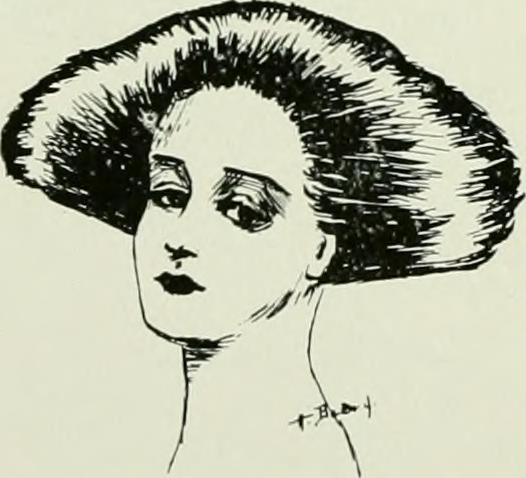
At that point, someone must have slipped out and told the story of the Metamorphate Cross-Dresser on the streets, and it wasn’t long before there were three new faces in the Ebullient Bass. The first time I saw them I thought they were from the local constabulary, known as the Slews. Yet even in my altered state I could smell something wrong about them, and looking again I saw their features more clearly. A Retriever is a highly specialized creature. They are bred for the hunt, and nothing else. When they are not being called upon, they languish in a certain wardrobe in the Doctor’s mansion, little more than a collection of clicking, quivering parts, all wires, tubes and coppery froth. On assignment, they are grown a fresh coat of rubbery, glistening flesh, to carry forth their machinery. From a distance they might be mistaken for a particularly loathsome-looking human, hunched, misshapen, androgynous. Upon closer inspection the irregularities become glaring. Their false skin is translucent, their eyes bulge like a drunk snail’s, and continually they sweat a fishy syrup from their overworked pores. The Doctor, in the name of decency and appreciation for décor, has them ever-clothed in heavy black greatcoats, and bowler hats. Quite out of style, and out of place, yet I didn’t notice them until too late.
The three of them stood there in the doorway, dinner-plate eyes twitching and button-black pupils clicking back and forth, in uncanny unison. I stood unsteadily upon a dining table, a bottle of Migsby’s 18th in one hand, just starting the first verse of another bawdy lyric. Their eyes suddenly fixed on me with a snap, and the three of them began to quiver like a tuning fork in tapioca. There was a rasp, and the nearest of the vile puppets opened it’s mouth like a great sick frog. There was a blur of gray, and I found that my voice was suddenly constricted. There was an icy pain around my throat, and looking around to face my would-be captors, I saw that the leader had me constrained around the neck with a cold, wet chain, shot forth from its gullet. All voices and susurrations could no longer be heard, the tavern was silent. I barely had time to croak out an “Oh my,” when someone screamed, and I felt myself lifted off both the table and my feet. The Retriever crouched low to the ground like a beast, on all fours, and jerked it’s head sideways, retracting the chain in it’s mouth at the same time. The force was enough to break a man’s neck, but thankfully, I am not a man, and my neck is made of hard-wearing stuff.
I crashed to the floor while panicked patrons backed away from the violence, and my hands gripped the chain while I was dragged closer to the Retrievers. The other two made ready with manacles and additional chains produced from their coats. I held on to my bottle of wine, as I felt it could be of use. When I was within a good distance from the foremost of them, I made ready for a rapid and painful transformation. As my captor made ready to subdue me, I first gripped my Migsby’s (a fine vintage, it felt criminal to waste it so) and brought up the bottle towards the creature’s eyes with great force and vehemence. It shattered, spraying glass and red nectar all over, but mainly into it’s face.
When one is inconvenienced by an eyeball full of glass, it becomes difficult to stay focused on the goals at hand, but it still had me by the neck (and I doubt the Doctor allowed them to feel pain). It groped at me, but it missed the key moment when I flexed my transformative skills. I expanded my neck to an excruciating degree, causing it to balloon outwards. For a moment I feared the chain would cut into my skin (I could already feel the trickle of blood), but with a clatter I burst the links and was free. The other two lurched forward to finish my arrest, but I was too quick for them. I leaped backwards and kicked over a table. While one picked shards of glass out of it’s ruined eye, the others crouched low and fired their chains. They both missed, but shattered the table. As splintered wood and dust filled the room, I looked about for an escape.
To run past them through the main entrance would be folly, and I couldn’t escape them in the streets. Fighting them was out of the question. My body is a tool of great utility, but it is no weapon. I’d be better off seducing them. I noticed then another point of egress from the Ebullient Bass. It was not a pleasant option, but I found my life was becoming a catalog of dire choices. I began to run.
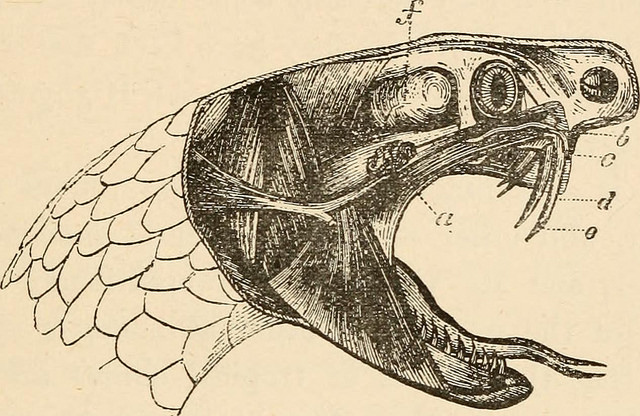
Rattle, clink, and smash, that was the Retrievers’ song, and I danced to it with leaps, bounds, ducks and rolls. They obliterated the furniture, and more than once brought low an innocent patron as they staggered forward and launched their mancatchers. At one point they caught me about the arm and yanked me backwards again. Without even thinking I squeezed my muscles and shed the arm like a lizards own tail. I would mourn it’s loss later (little did I know that I would have more mourning to do than that). The window was in sight. It overlooked the rafters, and the sea below. I buried any thoughts of death or injury. Pausing just long enough to look at the Retrievers and impart on them a lewd gesture, I leapt through the open window.
Those thoughts of death and injury I had buried quickly resurfaced. I fell freely in exhilaration for a few moments, then realized the architecture of the lower bridge was more complex than I first thought. Hitting the first steel girder was a lesson in both pain and physics. I escaped the inevitability of neither. Vomiting blood and other things I rolled off and fell several stories further, numb and nauseous, but still alive. Girders two through four had me thinking more seriously about my own mortality. Was freedom worth all this? Was it true freedom I had discovered after my escape, or would I forever be dogged by my creator for the rest of my existence? I loved life, but in my rashness I had perhaps closed off many opportunities. I was afraid.
Lower Harrowgate rushed past me, a blur of smoke, steel, and desperate humanity. I settled on the fourth steel girder with a wet crunch (it was slightly wider than the others) and I took stock of myself. I was missing an arm, and had effectively lost a leg to girder three. I have blood, and I have bones, though neither are of the same composition as those with more traditional physiology. The Doctor gave me these things, and fear I may have wasted them. I bled profusely, and had made a mess of my poor skeleton. Terrible Joy, freedom and it’s consequences. The cards always make a bit more sense in hindsight.
But I was even less free than I had thought. Black shapes were moving at the edges of my vision. I thought I was losing consciousness, but they were very real. They were like birds, flying swiftly through the rafters above. Only they weren’t in fact flying. They were swinging. As they descended I saw them more clearly. The Retrievers had their chains extended, and were roping along from girder to girder like daemonic apes. Somehow their hats stayed on in the strong winds of the under-bridge (probably fixed to their heads). The landed in a circle around me, peering down like hateful toads. I could see their mouths open slowly, making ready to complete their mission. They seemed to grin, though I knew this to be an illusion. Within those slack maws I glimpsed a spinning complexity of clockwork and machinery. I was so very weak. I had performed many exertions and complex transformations that day, more than I had ever done before. I felt a flicker of pride at that, but I could barely move.
Their chains shot forth, and all three wrapped around me tightly. Movement was all but impossible. Their was a hiss from all three, and a series of clicks. Their chains became separated from their gullets, and they set to work tying me off with manacles and padlocks. All their equipment dripped a grayish slime, and smelled faintly of fish oil. I struggled like a babe, but only succeeded in pushing myself a few inches. The Retrievers seemed satisfied that I was secure, and threw back their heads for a moment. I heard a squelching and a rattling all at once. I surmised that they must be coiling a new set of chains within their inner mechanisms, if the sound was any indication. Though I was weak, and near death, I had another, rather suicidal idea.
I was quite close to the edge of the girder, and below me was naught but sea-fog and the waters of the Effulgent Strait. I closed my eyes and steeled myself for one last, minor shift in anatomy. The Retrievers continued to re-calibrate, and I slowly, very slowly, extended my neck to the edge of the girder. It only took a few inches before I was able to reach the edge, and close my teeth around the bitter metal. They must have been finishing their business, but I gripped as hard as I could with my jaw, enough to crack a molar, and dragged myself forward with the dregs of my last strength. There was no longer any thought or reflection on this course of action, my body had chosen freedom, and my mind would follow along come death or drowning. I heard the Retrievers stop their ominous rattling, but by then they were too late. A caterpillar in chains, I heaved myself over the side, and fell. I turned in the air, to look up at the under-bridge one last time. The Retrievers shot forth new chains to catch me, but they fell short. Rolling now in free fall, I descended through the ocean mist and saw the dull surface of the water approaching fast. Mercifully, my body failed me at last and I fell into black unconsciousness. Surely I hit the Strait like a meteor, with an impact that should have destroyed me, but I did not awaken even for that.
I do remember afterwards, however, that I dreamed of water.
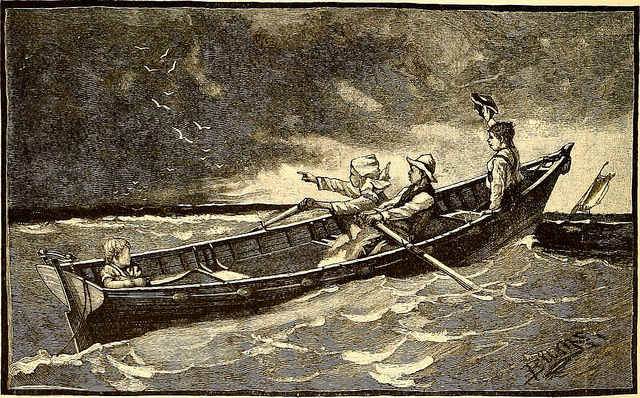
Images courtesy of the Internet Archive Book Image’s photostream
